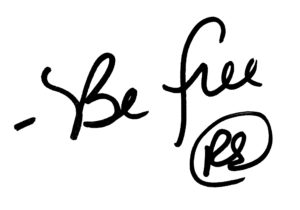When I lived in Christianity’s community, it often puzzled me why we weren’t a part of the environmentalists. If we believed all of creation was God’s, shouldn’t we want to care for it? I’ve recently learned why Christians see environmentalists as enemies, though. As with everything else, it starts with the Bible.
Genesis Broke the Bond
Regardless of whether you believe Moses wrote Genesis or other scribes assembled it after his death, it is fact that the advent of the “One God” system launched in Genesis 1 and 2 vastly changed how humans lived within the life on Earth.
Before God set aside the Hebrews as his chosen people via covenant relationship, everyone pretty much worshiped a pantheon of gods and goddesses. People worked with and worshiped those gods and goddesses in order to live the recurring elements of life well. They prayed for rain to feed their crops. They asked for protection from the elements. They requested help with conception, birth, and various ailments. Gods and goddesses were constant companions who wielded authority and ability regarding life – and part of life included the phase of death. (More on that in a future post.)
But, in Geneses 1 and 2, mankind is suddenly set in dominion over all of creation and told to subdue it.
“…and God said to them, ‘Be fruitful and multiply, fill the earth and subdue it; and have dominion over the fish of the sea and over the birds of the air and over every living thing that moves upon the earth.” (Genesis 1:28)
Modern Application
This idea – this “dominion theology” – is used by today’s Christians scoffing at those who express concern about polluted oceans, shrinking ice caps, ballooning trash dumps, carcinogenic chemicals in foods and health products, chemical runoff from crop sprays, vanishing wild salmon, and more.
“The earth exists for us,” I was told growing up. “Not the other way around.” My evangelical Christian mother probably didn’t realize she was nearly quoting New York’s Cardinal John O’Connor. On Earth Day 1990, Cardinal O’Connor exhorted people to remember that “the earth exists for the human person and not vice-versa.”
Even in those days, I wondered how the earth could continue to serve us if we kept filling it with chemicals and trash and behavior that killed it. I mean, if we catch all the salmon and eat it – even if Genesis gave us the right to – then what will my children eat? Christianity believes that God will just supply something else for the next generation (maybe manna and quail! tasty!), but this idea is directly opposite of how people lived on the earth both before Judaism and – in smaller pockets – today.
Shouldn’t we consider that there is wisdom in the ancient ways? That these ways worked well before the advent of monotheism?
In coming out of Christianity (and, by extension, the Religious Right), I awakened to a brokenness inherent in the system’s theology – a sad loss of connection with life. By subscribing to a theology that says I am separate from and have dominion over all non-human living beings, I lost communion with those beings. Anytime that inevitable connection reared its head via a sense of awareness, or a niggling of feeling that there was communication and relationship going on just beyond my human comprehension, I shoved it away as being fanciful and, quite possibly, New Age.
But Truth always wins out.
We can only deny the Truth of our connection with life for so long. Fully subscribing to dominion theology requires a level of arrogance, greed, and selfishness that aren’t compatible with authentic peace and inner contentment.
The whole of non-human life on Earth does not exist solely to serve me (or any human).
It exists.
As I exist.
I breathe as all of life breathes.
I need water as all of life needs water.
My flesh returns to being dirt as all of life’s outer shell returns to being dirt.
As a recovering former evangelical, I am now happily embracing the part of me that always wanted to sit quietly within the living beauty and cycle of nature. To borrow/restate a Biblical phrase in a way that resonates more truthfully with my soul…
Within nature I live and move and have my being.

What about you? Do you believe mankind has dominion over all living things, and that those things exist to serve human purpose? Or do you see yourself more as someone who lives within a vast system of life, in symbiotic relationship with that life? What do you think about environmentalists? How has your opinion of environmentalists been influenced by your faith?
(A helpful book for further understanding on this topic is The Lost Gospel of the Earth by Tom Hayden. It will be an upcoming book club selection for Patreon subscribers at the FREEVANGELIC level.)

Find Your Free! Leave a comment below...